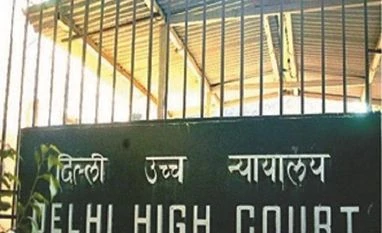Justice Rajiv Shakdher of the Delhi High Court Wednesday ruled in favour of criminalising marital rape and said the continuance of this immunity under the Indian Penal Code is "egregiously problematic" as it emasculates the woman's right to trigger prosecution against her husband for non-consensual intercourse.
The exception exists on the law book even though sex workers, as well as wives who are separated from their husbands continue to be invested with the right to prosecute the offender under the rape law, he said.
Justice Rajiv Shakdher, who headed the division bench which delivered the split verdict on criminalising marital rape, stated that although the right to withdraw consent forms the core of the woman's right to life and liberty and the marital rape exception (MRE) makes no allowance for the circumstances in which a wife may say no to sex with her husband, which only exacerbate the lack of autonomy and sexual agency which stands embedded in the provision.
What makes the continuance of MRE on the statute egregiously problematic is, while it emasculates the woman's right to trigger prosecution against her husband for non-consensual sex, women, who are sex workers or are separated from their husbands, are invested with this right, said Justice Shakdher.
Besides this, MRE makes no allowance for the circumstances in which a wife may say 'no' to sex. For example, a wife may refuse to engage in sexual activity with her husband when she is ill or is menstruating, or is unable to engage in sexual activity because of a sick child. The wife may also want to keep away from sexual activity in a situation where the husband has contracted an infectious, sexually transmissible disease, such as HIV; her refusal in such a situation may emanate not only on account of concern for herself but also, to protect the progeny which may result from such communion, he added.
Justice Shakdher asserted that the fact that the rapist is the husband of the victim does not make the act of sexual assault any less injurious, degrading, or dehumanizing and emphasised that marital rape leaves not only physical scars but also much deeper scars on the psyche of the victim.
More From This Section
The right to withdraw consent at any given point in time forms the core of the woman's right to life and liberty which encompasses her right to protect her physical and mental being. Non-consensual sex destroys this core by violating what is dear to her, which is, her dignity, bodily integrity, autonomy and agency, and the choice to procreate or even not to procreate, he said.
Justice Shakdher also opined that the argument that striking down marital rape exception would result in the lodgement of false cases is based on a notion which is not backed by any empirical data.
He said that a vast number of women do not report sexual assaults because of the stigma attached to it and that the data of the National Family Health Survey, which was carried out under the aegis of the central government for 2015- 2016, revealed disturbing aspects concerning spousal sexual violence, both, from "current husbands" as well as "former husbands"; apart from the fact that 99% of the sexual assault cases remain unreported.
Therefore, the apprehension expressed that there will be a deluge of false cases against offending husbands does not appear to be correct. If the NHFS data is taken into consideration, it establishes that 9.9 out of 10 cases of sexual assault in India go unreported. Thus, the contention that because there is a possibility of false cases being lodged and, therefore, the courts should refrain from striking down MRE even if it is unconstitutional, is in my view, a contention which is completely unmerited, stated the judge who added that the courts in India are fully equipped to deal with false cases.
The judge, while holding that the exception was violative of Articles 14(Equality before law), 15 (prohibition of discrimination on grounds of religion, race, caste, sex, or place of birth), 19(1) (A) (right to freedom of speech and expression) and 21 (right to life and personal liberty) of the Constitution, that sexual assault by the husband on his wife needs to be called out as rape and non-consensual sex in a marriage is an antithesis of what matrimony stands for in modern times i.e. the relationship of equals.
)